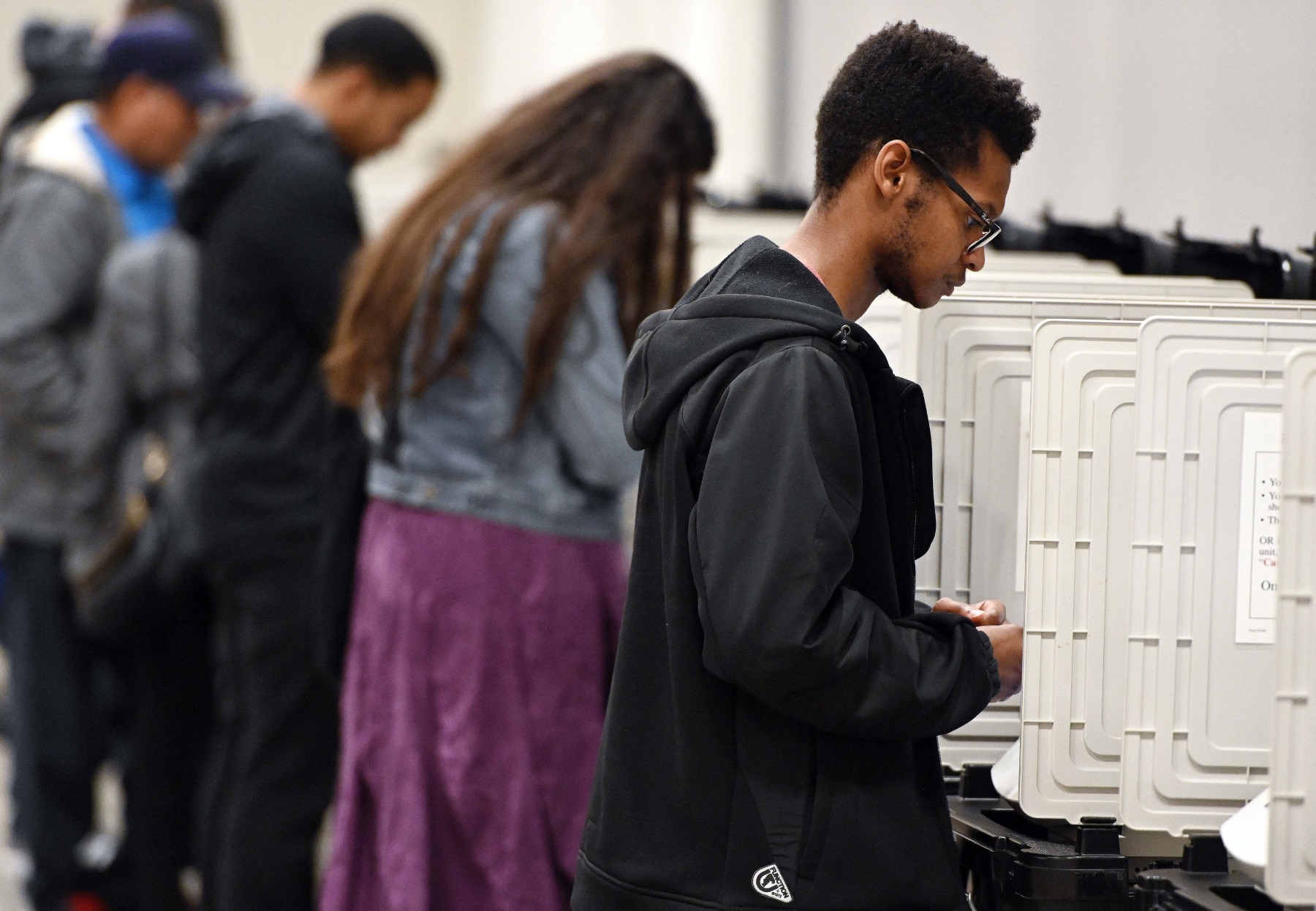Georgia has some of the country’s most restrictive ballot-access policies. Those policies control how third-party candidates can get their names on the ballot. And some lawmakers at the state Capitol want to change that.
Luanne Taylor lives in Johns Creek, north of Atlanta, and is a lifelong independent. But she’s really never been able to vote for an independent, so she asked the question: “Why was it so hard for an independent to appear on the ballot? So I signed up, paid $400, went through the process, and now I know.”
Taylor tried to qualify to run for her state House seat last year.
For all district races in Georgia, like a General Assembly seat or a U.S. House race, hopeful candidates need 5 percent of active voters to sign a petition. Statewide candidates need 1 percent. For Taylor, that meant 1,635 signatures.
“I kind of just treated it like a job,” she said. “Tuesday, Thursday, Saturday, I went up to the Kroger off Douglas Road and tried to get signatures.”
She ended up with 504 names.
Now? She’s lobbying lawmakers to change the policy, and she’s not alone.
“We shouldn’t be afraid of hearing new ideas, and if you have good ideas, you should be able to take a little bit of competition,” said Ryan Graham, vice chair of the Georgia Libertarian Party. He ran unsuccessfully for a Public Service Commission seat in November.
The Libertarian Party managed to get enough signatures for that statewide seat back in the 1990s, he explained. And since then, enough people have voted Libertarian to keep the ballot access. That doesn’t affect other races though, and it doesn’t help everybody else.
Only one third-party candidate got on a General Assembly ballot in November. On top of the volume of signatures required, there’s a 180-day window to collect signatures. Plus, each page has to be notarized, which can get expensive, Taylor pointed out.
Graham said there’s also the issue of validating signatures after they’ve been collected.
Even though he said his party used a list directly from the Secretary of State’s office to target active voters, for one state House race, the county election office only validated about 50 percent, “which is pretty terrible,” he said.
Graham said the policies date back to fears about Communism.
“I don’t feel very good about Communism or the Communist Party, but I think that everyone should be allowed to run for office,” he said. “Free markets should extend to every aspect, and if you’re putting limits onto competition, that’s bad.”
Dar’shun Kendrick is a Democratic state representative from Lithonia who sponsored a bill to loosen the policy. The proposal would change the signature requirement for all public offices to 1 percent of active voters, or 200 people, whichever is less.
What is it about for her?
“How can we make sure that we don’t get as polarized as they are in Washington, D.C., and how do we make sure that our democracy is the strongest that it could be,” she said.
Kendrick said this should be part of the discussion in the state Legislature and the Democratic Party about voting integrity and voting technology.
“We’re talking about voting and voting rights in the state now because of the last election, but, I think, we should look at it more broadly,” she said. “Not just about voting machines and voting systems, but how do we protect our democracy in general.”
While she knows the bill might not sail through — a similar proposal didn’t even get a hearing last year — she’s hopeful, and the bill has bipartisan support.
Graham with the Libertarian Party said it’s a tough pitch to make to lawmakers.
“A lot of them, quite frankly, run unopposed, and it frees them up to do other things. They’d rather not be campaigning, I’m sure,” he said. “If they’re not running against somebody then it’s easier to win.”
“Well, I think the public is all for it, but that’s different than saying, ‘Are my colleagues who are currently in power ready for it?’” Kendrick said.
Just under two-thirds of the state Legislature ran unopposed in November.
“In Georgia, we’re lucky to have two choices,” Taylor said.









